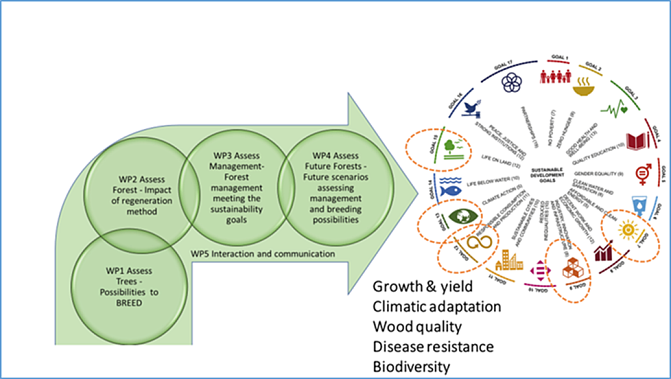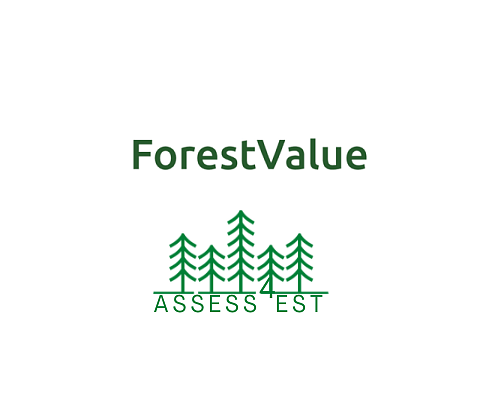Assess4EST – Project Structure
The work is divided into six work packages (WPs).
WP1. Assess Trees – possibilities to breed
Is studying the genomic basis of crucial traits for breeding and assessing possibilities to breed using genomic prediction methods that have become available for tree breeding only recently, with emphasis on investigating genomics of trade-offs between traits and possibilities to solve those in breeding or via optimal deployment strategies.
WP1 leader: Rosario Garcia-Gil, SLU
WP2. Assess Forest – impact of regeneration method
Is assessing phenotypic and genotypic variation in important traits: growth, climatic adaptative potential (growth rhythm, frost and drought resistance), Heterobasidion resistance, and wood quality in differently regenerated forests: advanced breeding material, even-aged naturallyregenerated stands, and continuous cover stands with selective cuttings.
WP2 leader: Aris Jansons, SILAVA
WP3. Assess Management – stand level case studies
Is using information from WP1 and WP2 to introduce novel features to growth and yield simulation tools to assess stand level case studies including growth, wood quality, and resilience against diseases/ climatic stresses, and to conduct stand level assessments on the impact of forest management practices (especially even-aged, genetically improved material vs. unimproved, even-aged material and CCF) on yield, carbon, biodiversity, and quality of wood.
WP3 leader: Jari Hynynen, Luke
WP4. Assess Future Forests – management and breeding possibilities
Is assessing, with the help of information obtained in WP1, WP2, and WP3, and discussions with stakeholders conducted in WP5, the optimal combination of regeneration methods and forest management to maximize the future contribution of the forest in the Northern European region with respect to different SDGs.
WP4 leader: Clara Antón Fernández, NIBIO
WP5. Interaction and communication
Is Engaging end-users in the project to discuss future forests: use of wood in the future, wood quality needed. And is building scenarios for future forest management and raising awareness of the project output among the target audiences.
WP5 leader: Arne Steffenrem, NIBIO
WP6. Project coordination
WP5 Leader Katri Kärkkäinen, Luke


